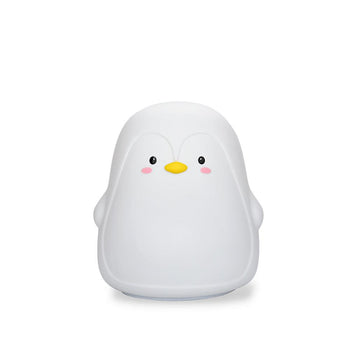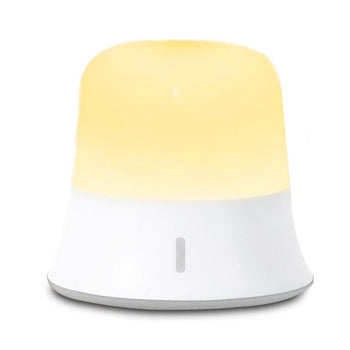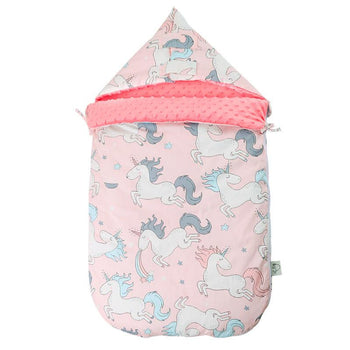Once you understand your newborn's sleep patterns and behaviors, you'll start to put a little more order in your daily life and have a little more confidence in your decisions and behavior during the first few days. of the baby's life.
Although newborns may not stick to a set sleeping or feeding schedule due to their many growth spurts in the first few months, these examples of sleeping and feeding schedules for newborns will help you get through these times and make sure everyone gets the sleep and nutrition they need.
Otherwise, you may spend all day comforting a crying infant.
When a newborn baby is too tired, does not sleep enough or is hungry, he cries a lot more. In other words, imposing a routine on him (even if it's not strict) will save your life!
Your newborn's feeding schedule should be age-appropriate, and you should never withhold food to keep to the schedule . The newborn sleep schedule is often determined by how long your baby can stay awake (rather than the clock), which is normally short in the days following birth.
Keep reading to find out how you can get started.
Go directly to the timetables here
Understanding Newborn Sleep Patterns
From birth to around 3 months of age, a baby is considered a newborn.
Your newborn's sleep patterns will be completely different from yours during this time.
Your baby can sleep for brief periods, from 30 to 45 minutes to 3 or 4 hours, and eat in between.
In other words, newborns don't follow the traditional day/night sleep cycle. Some newborns totally confuse day and night when they come out of the womb!
This is called day/night confusion, which causes babies to sleep a lot during the day and wake up early at night. I tell you all about this day/night confusion in this article and how to help baby have a normal rhythm.
During the first week or two after birth, many newborns seem very sleepy and need to be woken up to eat or during a feed before they are full.
However, within three weeks of birth, your baby will undoubtedly “wake up”. This is when you may start to feel heightened excitement. In fact, you might start to regret those first few weeks with a very sleepy baby!
As babies get older, they will cry more often (depending on their temperament), but you will quickly learn how to soothe a crying infant.
Adapt newborn feeding schedules
Newborns eat regularly, so there is no need to worry about it.
This is completely normal !
Your newborn's belly is very thin. It is simply a question of filling it regularly.
Because it takes a newborn's tummy longer to digest and break down formula, formula-fed newborns may need to feed less often than breastfed newborns.
Therefore, babies are more likely to feel full for longer periods of time. Breast milk, on the other hand, is easily digested.
How much breast milk or formula does your child need?
Of course, each case is unique, but if your baby is formula-fed, you can use a basic formula to estimate how much your baby needs per day.
Here is a little calculation to know your baby's milk needs (Go for a little math!!)
- Take your baby's weight in grams.
- Divide this number by 10.
- Add 200, and you will get the amount of milk in mL baby needs every day!
So for example, over a 24 hour period, a 3.6kg or 3600g baby will need about 560ml of formula.
If you are breastfeeding, most newborns need 560-850 g of breast milk (and 700-990 mL once they are past the newborn stage).
How often should you feed your baby?
In general, if you are primarily breastfeeding, it is safest to breastfeed on demand for the first few weeks after birth to ensure a steady supply of milk. In general, you will need to breastfeed every 2-3 hours on average to maintain your production.
When your baby is over 3 months old and in the infant stage, the gap between each feed will gradually increase to 5-6 hours, 7-8 hours, and finally 10 or 11 hours until whether he is 9 or 10 months old.
Growth spurts in newborns
Believe it or not, a lot is going on with your baby.
Too much transformation and growth is taking place in this little body! At the following stages, your baby will most likely experience growth spurts at the age of:
- 7 to 10 days
- 2 to 3 weeks
- 4 to 6 weeks
- 3 months
During these growth spurts, your baby seems to be eating almost continuously (and when he's not eating, he's sleeping). This is completely normal, feed your baby as much as he needs, as extra feeding is essential during the growth spurt.
How to establish a feeding and sleeping schedule for a newborn?
Your newborn's wake times and total sleep needs may differ from those listed below.
These times are based on averages. However, your baby may need more or less sleep (or shorter or longer wake times) than mentioned.
Don't forget to pay attention to your baby's sleep cues (eye rubbing, yawning, staring, etc.)
Also, remember that if your baby is still fussing, he's probably exhausted. Next time, try to put your child down for his nap quickly, before he starts to fuss.
Find out here how you can put your baby to sleep in just 6 simple steps.
Breastfeeding for newborns 2-8 weeks old
This schedule is best suited for babies who eat an average amount of breast milk and mothers who produce and store an average amount of breast milk.
| 9 a.m. | Waking up and breastfeeding* |
| 10 a.m. | Nap (30 - 60 minutes) |
| 11 a.m. | Waking up and breastfeeding |
| 12:30 p.m. | Nap (30 - 60 minutes) |
| 1:30 p.m. | Waking up and breastfeeding |
| 3:30 p.m. | Nap (30 - 60 minutes) |
| 4:30 p.m. | Waking up and breastfeeding |
| 6 p.m. | Nap (30 - 60 minutes) |
| 6:30 p.m. | Waking up and breastfeeding |
| 7:30 p.m. | Mini-nap (20 - 30 minutes) |
| 8 p.m. | Waking up and breastfeeding |
| 9:30 p.m. | Mini-nap (20 - 30 minutes) |
| 10 p.m. | Waking up and breastfeeding |
| 11:30 p.m. | Breastfeeding and sleeping* |
| 3:30 a.m. | Breastfeeding and going back to bed |
| 6:30 a.m. | Breastfeeding and going back to bed |
A different schedule is needed for babies who eat smaller amounts, babies with reflux, and mothers who produce and store smaller amounts of breast milk. Babies who eat more at each meal, as well as mothers who produce/store more breast milk, will benefit.
Formula feeding for newborns from 2 to 8 weeks
Since formula is more difficult for the baby to consume, this program provides longer naps and fewer feedings than the breastfeeding program above. As a result, babies seem to feel full longer and therefore need fewer feeds.
| 9 a.m. | Waking up and breastfeeding* |
| 10 a.m. | Nap (30 - 60 minutes) |
| 11:30 a.m. | Awakening |
| 12:30 p.m. | Breastfeeding and nap (30 - 60 minutes) |
| 1:30 p.m. | Awakening |
| 3 p.m. | Breastfeeding and nap (60 - 90 minutes) |
| 4:30 p.m. | Waking up and breastfeeding |
| 6 p.m. | Nap (30 - 60 minutes) |
| 6:30 p.m. | Awakening |
| 7:30 p.m. | Breastfeeding and nap (30 - 60 minutes) |
| 8:30 p.m. | Awakening |
| 9:30 p.m. | Nap (30 - 60 minutes) |
| 10 p.m. | Waking up and breastfeeding |
| 11:30 p.m. | Breastfeeding and sleeping* |
| 3:30 a.m. | Breastfeeding and going back to bed |
| 6:30 a.m. | Breastfeeding and going back to bed |
* I suggest that you fit these times into your baby's schedule. You can find more information about this in our article on fixed points in a baby planner.
I hope this article has enlightened you on the subject. Feel free to share your experiences with us in the comments.
"Reader's special" offer
Take advantage of -30% on the entire collection >>> Sleep <<<
Take advantage of this special offer with the code
DODO30
Do you want your little one to spend all their nights?
In this free guide , you'll discover 5 things you absolutely need to know.








































